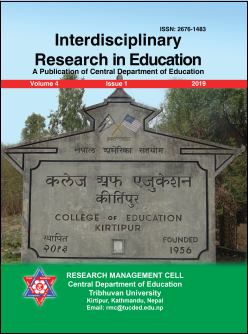Impact of Perceived Behavioral Control on E-learning Adoption
DOI:
https://doi.org/10.3126/ire.v5i1-2.34728Keywords:
Behavioural Control, Demographic variables, E-learning, International schools, Sri LankaAbstract
E-learning adoption (AEL) is a contextual phenomenon. Therefore, this research attempted to identify the association of adoption constructs and perceived behavioral control (PBC) on AEL in Sri Lankan private international schools’ context. The sample consisted of students of three leading international school chains. Respondents were selected on multi-level cluster sampling method as per provinces/districts and major cities in which these schools are in operation. Overall, 450 questionnaires were distributed and 271 completed and returned questionnaires (60%) were considered for the final data analysis. A deductive methodology and quantitative method had been followed in the research. PBC factors were identified by conducting PCA. TAM, extended by using the PBC. The empirical evidence supported the positive relationship of adoption variable and PBC variable towards AEL by correlation analysis and hierarchical regression analysis. The presence of differences in AEL between the students engaged in aesthetic subjects and science subject categories were also supported by the contrast test of ANOVA. ANCOVA revealed that the covariate; age was not significantly related to the student’s AEL while the Hayes’s process for moderation analysis has confirmed the relationship between PBC and AEL is being moderated by student’s age.




